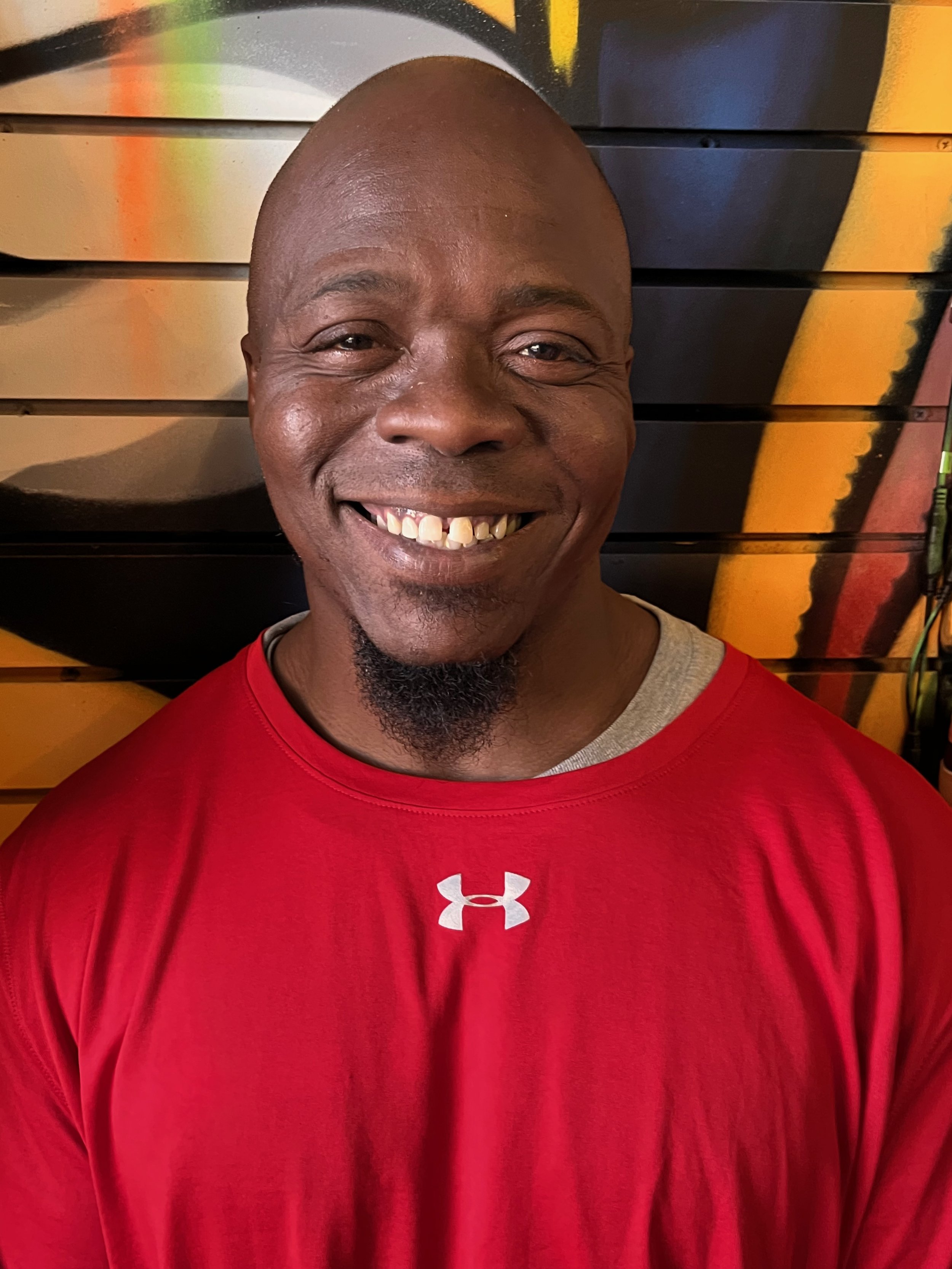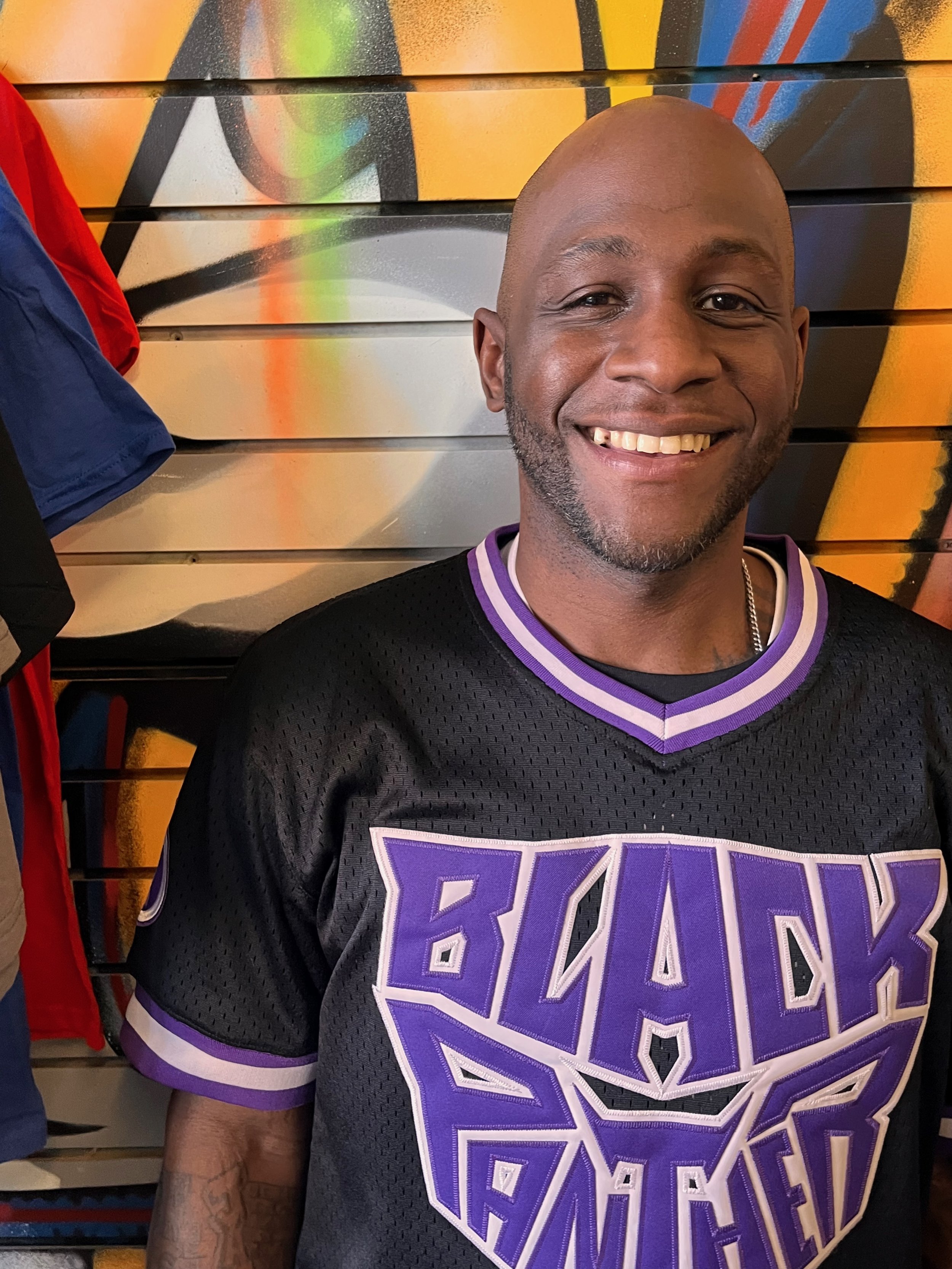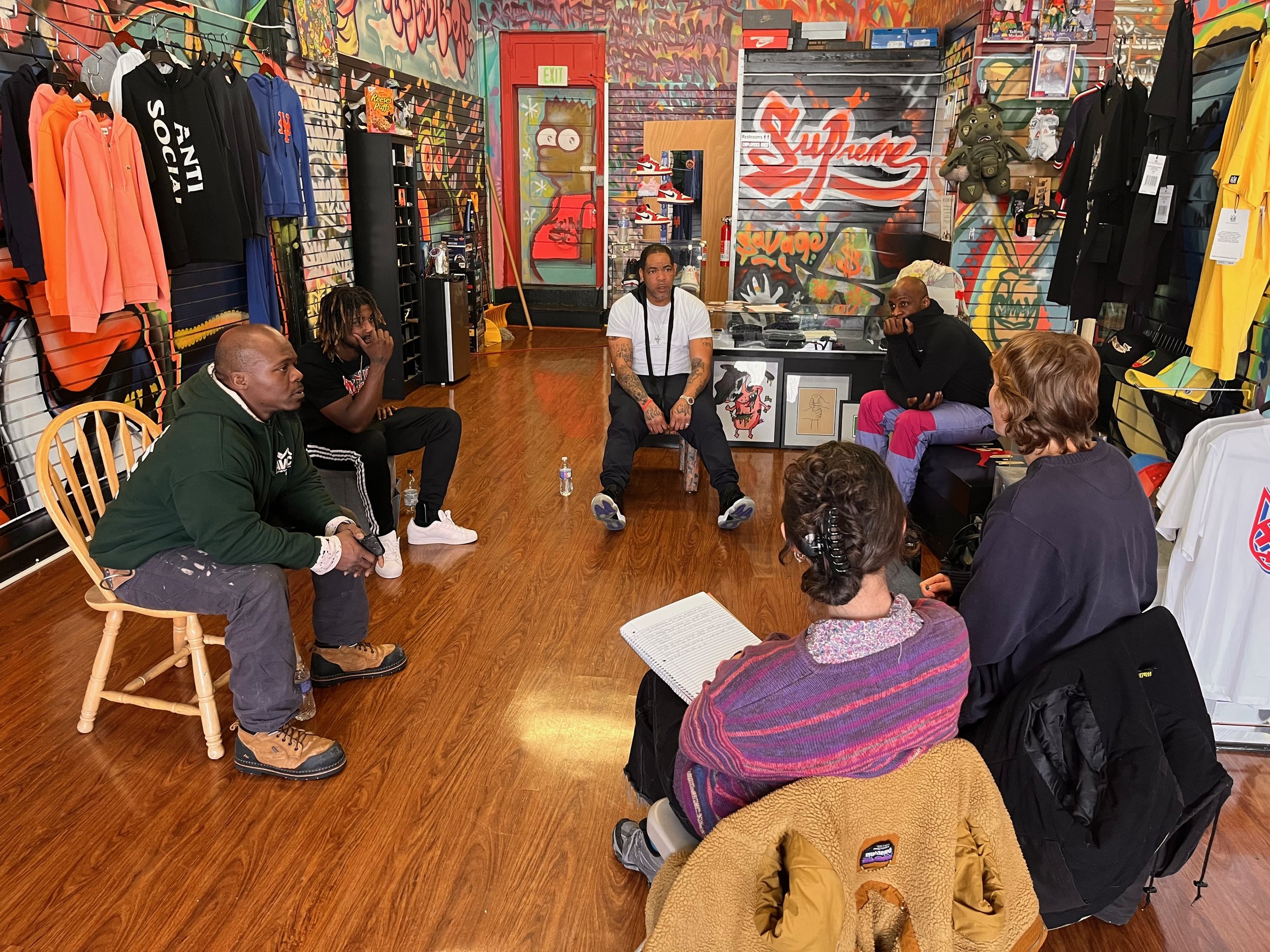Pittsfield Freedom Project
The Pittsfield Freedom Project is a narrative project comprised of a cast of men who have each spent over a decade in American prisons. The cast shares real-life stories of before, during and after incarceration. Stories are interwoven with original music and movement.
Screenings and talk-backs for justice-involved youth
The Pittsfield Freedom Project combined documentary film, live performance, and talk-backs. During filmed interviews, cast members are invited to reflect on their life story: growing up, education, falling into the system, time behind the wall, reentry, and life today. Interviews are edited together to amplify a larger message.
Screenings and performances are geared towards justice-involved young people. The cast hopes to use their experience to impact young people who may be going down a similar path. Screenings and talk backs aim to build relationships, cultivate hope, and—together—find innovative ways forward.
MEET THE CAST
“We are still people, not animals, yet we are often abused by the system. It needs to be an environment that doesn't use pain and punishment to fix the problems with crime. My story of being a youthful offender at the young age of 17, sentenced to 18—20 years, holds the tale of a young boy who had to grow up and be nurtured (not by my mother or father) but by a violent system that caused me grief and missed out opportunities of individual growth. I was left to figure a lot of things out on my own. Thankfully I did.
I continued to educate myself even with all the violence around me. I became my own man. Now that I'm released 18 years later as an adult, I am taking my first steps in becoming a man that matters in society. The adjustment is sensitive but beautiful. I take each day as a reminder of what I been through, to use it as a driving force to pave my own way through life after incarceration.
My name is Tyson and I am the story of my life.”
Tyson
“The reason why I would love to share my story with the public is due to the fact that I owe my grandmother my life. She has passed away last year. Her and my auntie had family problems on both sides of the spectrum, so I had a taste of both sides of the railroad. She raised me to be a man.
Between all my young childhood accomplishments, there was still the Dark side that had took over and brought me down a path of destruction. Not only to myself, but to all those who came in contact with me. As a result of my actions as a young man, I found myself incarcerated for 13 years straight with a furlough of 10 months.
During my incarceration, I rediscovered who I am as an individual with the many men that I connected with while incarcerated and various chaplains, and the fact that I still believe in God help laid the foundation for my life’s work.
My story is a story of Hope, sadness, and pain, but in the end victory, or shall I say freedom. Due to the fact that I will not allow my past or certain circumstances to dictate the outcome of my future. It is not going to be easy, but you must believe in yourself first and foremost. I want to be able to tell how I was able to reverse my cycle.”
Kareem
Primo
“I’m honored to share my story to show the possibilities of returning to society and becoming productive in that society. This project is important because there is a lot of work to make this possible for others. To get more resources on the inside, and to address the disconnect between applying the proper resources needed to help inmates coming out of jail and entering back into society. ”
“I want to share my story because I feel like my life has been a journey and it continues to grow. At 43-years-old, this is a way to express myself. I am raising a baby pretty much on my own, with no real experiences in life other than being incarcerated. Sharing my story will be a self-reflection and an accomplishment.”
Johnel
“I want to share my story because I think it’s important for everyone to understand how indiscriminate the social issues of homelessness, addiction, incarceration, etc. are. How they can and do affect people of all demographics and how quickly one’s life can change.
Additionally, I’d like to shed light on the human side of these people and issues. Try to change the mindset that ‘these people are a problem,’ to a realization that these are people with solvable problems.”
Brandon
Uniting Berkshire County.
The Berkshires are known as a tourist destination for “arts and culture.” Many tourists and second-home owners come to the Berkshires during the summer.
But some voices and stories go unheard. We don’t often hear that Berkshire County has the highest recidivism rate in Massachusetts, or that some communities in Pittsfield are disproportionately plagued by incarceration.
The Pittsfield Freedom Project bridges this gap, uniting an arts institution in Williamstown with this cast of men from Pittsfield, just 22 miles down the road.
Performances
intertwine the stories of each cast member, as they walk us through their experience before, during, and after incarceration. They have complete autonomy in the telling of their story; no system, agency, or director controls their narrative.
We do not shy away from the facts: of all black boys born today in America, 1 in 3 can expect to spend time in prison, as compared to 1 in 6 Latino, and 1 in 17 white boys.
The American prison system costs taxpayers $260 billion/yr; in Berkshire County, it costs roughly $90,000/yr to incarcerate one man.
The cast members reflect on how life behind the wall impacts the individual, the family, and the community—through the lens of personal narrative.
We explore root causes, childhood, our education system, the streets, policing, court, life behind the wall, freedom, love, family—and, finally, coming home. (Or, in some cases, never coming home).
Talk-Back.
Performances aim to bring people together from different backgrounds, different towns, and different neighborhoods, to sit together in one auditorium—share, listen, and be in dialogue.
Each performance is followed by a talk-back, where audience members get a chance to be in dialogue with the cast. This is an opportunity for community members from all different walks of life to sit down together, listen, ask questions—and seek to understand.
Talk-backs aim to raise awareness, educate, diminish deeply entrenched stigma, and facilitate vital public dialogue—led by the true experts: those who have lived it.
Action.
It is vital that those with lived experience lead the way forward. That’s why Pittsfield Freedom Project’s cast members will be invited to join the Violence Prevention Forum—a platform to advocate for, and implement, tangible changes on the local level.
They’ll be invited to meet with Pittsfield’s Mayor, City Council members, and key stakeholders, and to join local advocacy and implementation efforts towards a public health, community approach to violence prevention.
We came, we listened, we talked—now what?
Chaos Theory has partnered with the City of Pittsfield’s Office of Diversity, Equity, and Inclusion, in the creation of a Violence Prevention Community Forum. Community members and stakeholders alike meet to advocate for changes they want to see implemented in Pittsfield—and plan next steps.
Audience members will also be invited to join this Forum in order to be part of advocating for—and implementing—tangible next steps at the local level.
Currently, the Violence Prevention Forum is working to implement gun violence prevention models that have proven effective in reducing shootings and homicides in other cities—and how we might implement similar models in Pittsfield.
We know that investing in prevention means putting money back into parts of the community that have been disproportionately harmed, and implementing public health approaches that have worked in other cities—in order to keep more community members alive and out of prison.
Freedom.
How do you define freedom? Justice?
How do creativity and human connection persist behind the wall?
How does the system depend upon dehumanization?
What does it mean to fully reclaim freedom?
The cast members share their story—growing up, falling into the system, living in the system, and returning to society. They explore larger themes of freedom, humanity, justice, self-expression, control, and power.
The Creative Process…
The Pittsfield Freedom Project will feature original music composed and performed by Berkshire-based artists.
Cast members will collaborate with composers and musicians, experimenting with different ways of integrating personal narrative with music and sound. They’ll also work with local choreographers, exploring new ways of integrating their stories with movement.
Together, cast members, composers, musicians, and choreographers will create site-specific work, exploring how narrative, movement, and music can be shaped by the surrounding physical space.
The process will foster and cultivate creative partnerships and collaborations between the cast, local musicians, composers, choreographers, and movers alike—breaking down preexisting barriers between different parts of the Berkshires.
Bridging Divides, Healing Communities: thanks to the Berkshire Taconic Foundation for allowing us to create a forum integrating Williams College students with men impacted by the criminal justice system. Participants shared their experiences behind the wall—as an incarcerated man, and as a volunteer. We shared questions, concerns, and opportunities for growth. We contemplated freedom, justice, community, inequity, and how Berkshire County can do better.






